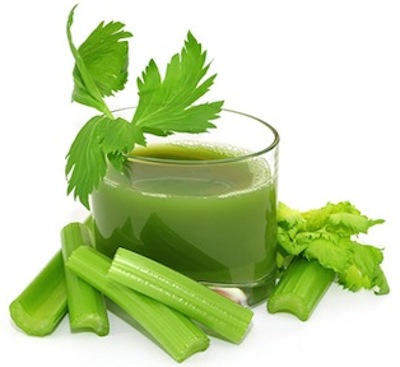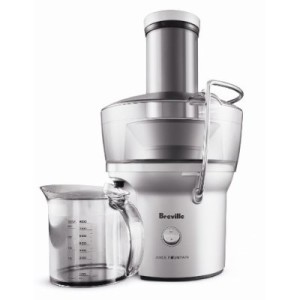
You will have noticed that many juice stalls have popped up around town, all claiming to be the best fresh-pressed juice you can find. For juice franchise, navigate here and get the best juice options.
The trend has had some claiming that consuming cold-pressed fresh juices can help you lose weight, boost immunity, prevent cancer and cleanse your system.
Whether the claims are true, this might have inspired you to look at buying a juicer.

While it remains to be seen if the health benefits are substantive, what’s guaranteed is that juicing helps you get more fibre and vitamins in your diet. It’s a time-saver to buy your juice from outside, but perhaps you are also thinking of trying it out at home.
So, what type of juicer should you buy?
Health enthusiasts have been debating over which type of juicer retains the most nutrition.
There are two main types of juicers: masticating and centrifugal.
Centrifugal juicers
This type of juicer has been around for a while and is more commonly found in stores and households. They extract juice by grating, shredding and spinning the pulped produce, collecting the juice that moves through a fine screen.

That way, juice and pulp are easily separated into different containers.
|Buy Centrifugal Juicers at Amazon |
The problem with centrifugal juicers is that the spinning metal blade that shreds the produce generates a lot of heat, which tends to destroy a large amount of enzymes in the fruits and vegetables.
By the time you’ve poured the juice into a glass, those nutrients are lost to oxidisation.
Masticating juicers
Masticating juicers grind and press the produce to extract juice, hence they are also known as cold press juicers.
These newer juicers first crush, then press fruit and vegetables to gather the highest juice yield. Because this type of juicer does not produce quite as much heat as centrifugal juicers, they tend to retain more of the fresh ingredients’ nutrients.
Pros of cold press juicers:
• The high pressure kills bacteria, so your juice will stay contaminant-free for about three days.
• Better for leafy greens, grasses, sprouts and herbs.
• Higher, more consistent juice yield.
• Preserves enzymes, nutrients and fibre.
• Your juice is juice, not foam and juice.
• It’s much quieter than your blender.
Cons of cold press juicers:
• Higher price.
• It takes longer to prepare foods and juice them.
Before investing in a juicer, do some research and consider if it fits your lifestyle.
Juicing involves time spent to prep ingredients, messy clean-ups, and not to mention, uncomfortable noise during the juicing process and hundreds, or even thousands, of ringgit to buy the right one.
You should buy a centrifugal juicer if you want to drink fresh juice, but are not concerned about maximising the nutrients you get from them; or if you plan to use the juice for cooking, which gives little reason to buy an expensive cold press juicer.
You should buy a masticating juicer if your aim is to optimise your nutrition needs through juicing, and plan to use high quality, nutrition-packed ingredients like nuts, fresh greens and antioxidant-rich fruit.
There is no best cold-press juicer. It really depends on how they fit into your life. Some are best for a beginner; some are more advanced. Some are made for luxury, and some are for heavy use.
Bottled cold-press juice
Juicing at home means that you should drink your juice as soon as you’re done pressing, because microbes and oxygen will degrade the nutrients.
With bottled juice, many companies use special processes to seal the liquid in before any damage is done. This enables cold-pressed juice companies to sell juice that still tastes fresh and stays good in the refrigerator for a few weeks.
The biggest difference between bottled cold-pressed juice and juicing at home is the final processing step. At home, you pour your juice in a glass or jar, and enjoy it before microbes and oxygen spoil it.
With bottled juice, you don’t get to choose the ingredients, which means you might be getting something that is too high in sugar for your preference.
And if you see ingredients that you do not recognise on a bottle of cold-press juice, avoid buying until you know more.
Still, bottled juice can be convenient when you want to maintain a juicing routine, but might not have the time to do it yourself.
Juicing at home, however, lets you increase the amount of vegetables that you use.
Ultimately, that should be the goal: reduce fruit (hence, reducing the amount of sugar as well) and up the vegetables, so that over time you will be enjoying greener and lower sugar juices.
Not everyone will be comfortable going from the refreshing sweetness of fruit juice to greener juices, so try this: Use juice from leafy greens and root veggies as a base to start, then add citrus or fruit to sweeten the taste.
Over time, you can add more types of vegetables, while reducing the fruit bit by bit.
Juicing requires times, commitment and conscientiousness. Juicing needs to be done with fresh vegetables, or you will be wasting your time.
A home juicer requires cleanup, and not to mention, the prepping of produce.
Once they find how much discipline it takes, many people lose the inspiration, and that expensive juicer will be stored at the back of the cabinet.
If you believe that juicing is something you are able to incorporate into your routine at least once a week, or perhaps for a one-week stretch every month, then a home juicer is a good idea.
If not, it’s time to look for your favourite cold-press juice store to get those nutritious juices.
Datuk Dr Nor Ashikin Mokhtar is a consultant obstetrician and gynaecologist. For further information, visit www.primanora.com. The information provided is for educational and communication purposes only and it should not be construed as personal medical advice. Information published in this article is not intended to replace, supplant or augment a consultation with a health professional regarding the reader’s own medical care. The Star does not give any warranty on accuracy, completeness, functionality, usefulness or other assurances as to the content appearing in this column. The Star disclaims all responsibility for any losses, damage to property or personal injury suffered directly or indirectly from reliance on such information.
Source:- Star2.com


Leave a Reply